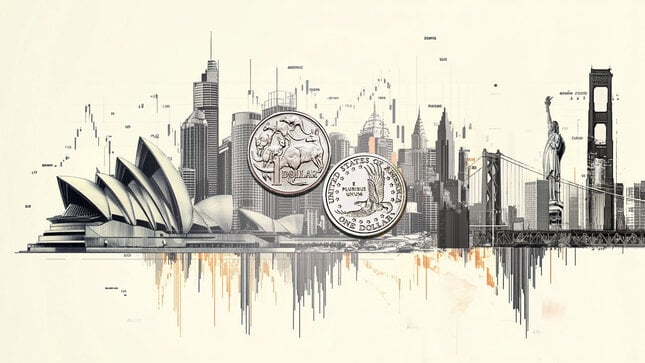The idea of using the beta coefficient is common among stock analysts trying to find those stocks that are moving differently to the main market average. This has a number of benefits, not least that stocks with higher beta coefficients offer a greater level of diversification than those with lower beta coefficients.
A stock with a low beta coefficient will be unlikely to outperform the overall market, whereas a stock with a high beta coefficient could move in a completely different direction. Some stocks with a high beta may even move in the opposite direction to the average, allowing them to survive market downturns.
In stocks, this beta can be measured with the following calculation:
Beta (x) = Slope of stock x / Slope of market average
In other words, if a stock increases in value by 14% while the market average increased by only 10%, the stock's beta would be 1.4. Generally, those markets with higher beta's can be said to offer better risk/reward.
Using beta in forex
While beta is commonly used in stocks, it is rarely used in forex and for a very good reason. Simply, because forex markets are valued against one another, they do not possess any upward bias, like stock markets do.Stock markets generally move higher over time, corresponding with economic growth and the act of buy and hold investing.
Conversely, forex markets fluctuate, where the simultaneous buying of one currency reflects the selling of another.
The upshot of this is that there is no point in calculating beta in forex by comparing one market to the slope of the market average.
A much better idea is to construct a market average of currencies, making sure to adjust them for their dollar values, then compare them by standard deviation.
By calculating beta in this way, it is possible to find the currencies that are trading with the highest volatility compared to the rest. In this way:
Beta (EURUSD) = StdDev (EURUSD) / StdDev (market average)
Results
Calculating beta in this way, shows how currencies relate to each other in terms of volatility. Those currencies with a high beta are the most volatile and these are the best ones to trade since they offer the best risk/reward.Of course, beta will not stay constant over time, and currencies with a high beta may not continue to be more volatile than the average in the future. This means that high beta currencies may not necessarily be the best ones to trade and it could be the case that the lowest betas might be the best.
Any strategy based on beta will therefore need to be tested to ensure that it works profitably. That is the nature of trading.
Editors’ Picks

AUD/USD stalls near 0.7150 after RBA Bullock's comments
AUD/USD has paused its uptick to near 0.7150 in the Asian session on Thursday, at a three-year high. Cautious remarks from RBA Governor Bullock seem to cap the Aussie's upside. However, renewed US Dollar weakness cushions the pair's downside ahead of US Jobless Claims data.

USD/JPY returns to the red below 153.00 after Japan's verbal intervention
USD/JPY attracts fresh sellers and falls back below 153.00 in the Asian session on Thursday. The US Dollar reverses the strong jobs data-led recovery, weighing on the pair amid the ongoing bullish momentum in the Japanese Yen, helped by Japanese verbal intervention. Japan's PM Sanae Takaichi's landslide election victory also keeps the local currency buoyed. The attention now remains on Friday's US Consumer Price Index inflation report.

Gold down but not out as focus shifts to more US data
Gold is back in the red near $5,050 early Thursday, having faced strong offers at around the $5,100 mark once again. Buyers keep a close eye on the mid-tier US Jobless Claims data and US-Iran geopolitical developments to regain control.

UK GDP set to post weak growth as markets rise bets on March rate cut
Markets will be watching closely on Thursday, when the United Kingdom’s Office for National Statistics will release the advance estimate of Q4 Gross Domestic Product. If the data land in line with consensus, the UK economy would have continued to grow at an annualised pace of 1.2%, compared with 1.3% recorded the previous year.

The market trades the path not the past
The payroll number did not just beat. It reset the tone. 130,000 vs. 65,000 expected, with a 35,000 whisper. 79 of 80 economists leaning the wrong way. Unemployment and underemployment are edging lower. For all the statistical fog around birth-death adjustments and seasonal quirks, the core message was unmistakable. The labour market is not cracking.
RECOMMENDED LESSONS
Making money in forex is easy if you know how the bankers trade!
I’m often mystified in my educational forex articles why so many traders struggle to make consistent money out of forex trading. The answer has more to do with what they don’t know than what they do know. After working in investment banks for 20 years many of which were as a Chief trader its second knowledge how to extract cash out of the market.
5 Forex News Events You Need To Know
In the fast moving world of currency markets where huge moves can seemingly come from nowhere, it is extremely important for new traders to learn about the various economic indicators and forex news events and releases that shape the markets. Indeed, quickly getting a handle on which data to look out for, what it means, and how to trade it can see new traders quickly become far more profitable and sets up the road to long term success.
Top 10 Chart Patterns Every Trader Should Know
Chart patterns are one of the most effective trading tools for a trader. They are pure price-action, and form on the basis of underlying buying and selling pressure. Chart patterns have a proven track-record, and traders use them to identify continuation or reversal signals, to open positions and identify price targets.
7 Ways to Avoid Forex Scams
The forex industry is recently seeing more and more scams. Here are 7 ways to avoid losing your money in such scams: Forex scams are becoming frequent. Michael Greenberg reports on luxurious expenses, including a submarine bought from the money taken from forex traders. Here’s another report of a forex fraud. So, how can we avoid falling in such forex scams?
What Are the 10 Fatal Mistakes Traders Make
Trading is exciting. Trading is hard. Trading is extremely hard. Some say that it takes more than 10,000 hours to master. Others believe that trading is the way to quick riches. They might be both wrong. What is important to know that no matter how experienced you are, mistakes will be part of the trading process.
The challenge: Timing the market and trader psychology
Successful trading often comes down to timing – entering and exiting trades at the right moments. Yet timing the market is notoriously difficult, largely because human psychology can derail even the best plans. Two powerful emotions in particular – fear and greed – tend to drive trading decisions off course.

